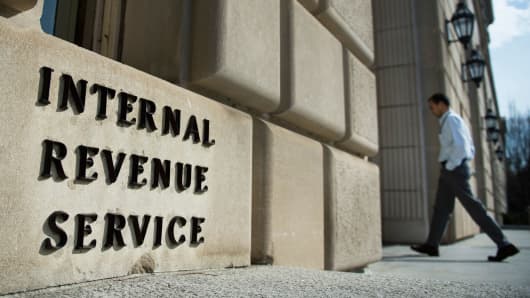If Congress follows President Donald Trump's lead on corporate tax reform, American companies will see their tax rate slashed from the top 35 percent rate.
But in reality, hundreds of companies have already figured out how to pay less than that — in some cases, a lot less.
Only about a third of large and mid-sized American companies pay 35 percent or more of their profits in taxes, according to an analysis of the effective tax rates reported in annual financial filings. CNBC's sample included 1,941 of the largest public companies, which had combined net income of more than $1 trillion in 2016. The data came from S&P Capital IQ and is based on SEC filings.
Of the overall sample group, 250 companies paid less than the 15 percent tax rate that Trump proposes; 178 paid less than 10 percent and 43 companies paid less than 1 percent.
Based on overall profits, roughly 85 percent of the net income reported by the group was taxed at less than the 35 percent rate. And some 14 percent of the profit was taxed at less than 15 percent, the rate the Trump administration has proposed as the new statutory maximum.
Some industries fare much better than others.
The real estate industry has long been the biggest beneficiary of tax breaks, writing off interest on loans and depreciating the value of a property for tax purposes, even when the market value of the property rises.
Only the S&P telecommunications services sector actually pays more than the top rate of 35 percent, according to the effective tax rates for 2016 provided by Capital IQ. (Capital IQ considered the effective tax rates companies report to shareholders in their financial statements.)



